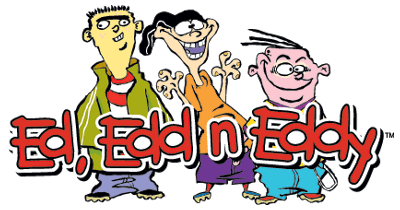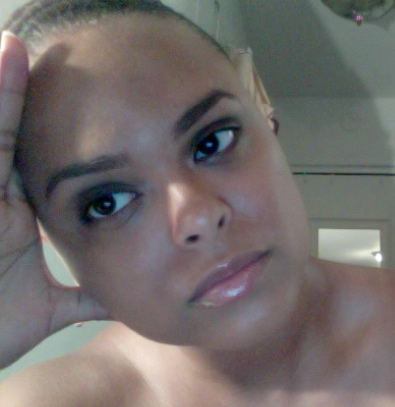The Evolution of a Definition: The ONL-OFL Continuum
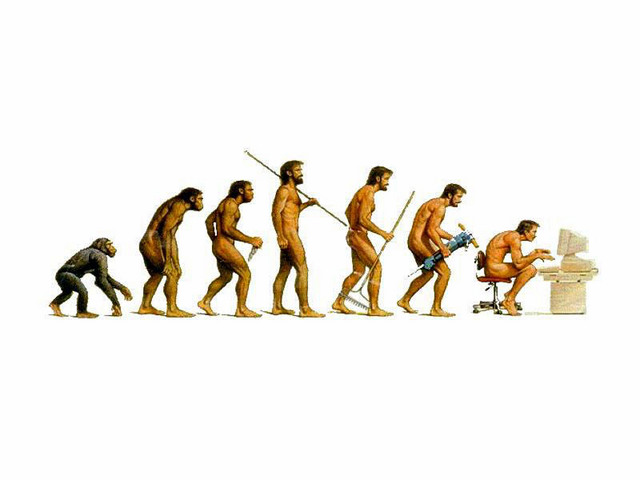 I thought it would be useful to compile all of the working definitions for the Online-Offline Continuum (ONL-OFL) that I've been developing over the past year and a half. It all started in my "Social and Communicative Aspects of the Internet" class during the fall of 2010...
I thought it would be useful to compile all of the working definitions for the Online-Offline Continuum (ONL-OFL) that I've been developing over the past year and a half. It all started in my "Social and Communicative Aspects of the Internet" class during the fall of 2010...
2010
Draft 1
The online/offline continuum is defined as an interactive and communication phenomenon characterized by the distribution of identities and social practices that shift between computer and non-computer mediated environments.
Draft 2
I define the online/offline continuum as an interactive and communication phenomenon that is characterized by the distribution of identities[1]and social practices that shift between computer and non-computer mediated environments.
[1] Sam Han reviews the history of Internet studies scholarship in his upcoming publication "Virtual Identities: From Decentered to Distributed Selves". I consider Han one of several scholars of an emerging new wave of scholarship that address the online/offline continuum. He suggests that we rethink assumptions about commonly held beliefs of virtual identity as disembodied and consider the process of identity construction as a sort of convergence (p. 25). In this analysis, I further introduce the concept of distributing identities as a way of understanding virtual identities in the future. Whether or not this conception proves meaningful to the scholarship is yet to be seen since further investigation is required.
2011
'Online' and 'offline' are not as distinct spheres, but may be conceptualized as a continuum of identities and socio-cultural practices across time, space, and of both computer-mediated and non-computer mediated interactions.
2012
Draft 1
I coin the term online-offline (ONL-OFL) continuum to describe a type of movement that shifts between computer (or machine)-mediated and non-computer (or non-machine)-mediated environments. As I describe this phenomenon, I am also arguing that the ONL-OFL continuum explains a theory of movement between and among networks across computer (or machine)-mediated and non-computer (or non- machine)-mediated environments.
Furthermore, it must be noted that the ONL-OFL continuum describes one type of movement of one type of network process between computer-mediated (or machine) and non-computer (or non-machine) mediated environments. Networks are a plural concept. For this reason, it is nearly impossible to present a single theory for the movement of all networks, since so many exist simultaneously, side-by-side, within and without each other. As well, movement of the ONL-OFL continuum, therefore, describes plurality of motion. Like with some articulations of theory, the ONL-OFL continuum seeks to explain a phenomenon of movement from multi-dynamic socio-cultural and communicative perspectives, which cannot be necessarily defined through typology, nor can it be absolutely traced if not for “things” also moving within an organized social space (Latour, 2005).
Current definition (2012)
The ONL-OFL Continuum describes what happens when our selves move, as well as describes the practices that constitute our selves moving within and among computer mediated and non-computer mediated contexts. Additionally, the ONL-OFL Continuum says that ‘connected’ realities inform ‘disconnected’ realities, and vice versa, and as such may very well result in the (re)shaping, (re)making, and co-construction of experiences across contexts.
It's worth noting that my ideas about movement (i.e. shifting and tracing) and being marked evolved once I began to ground them in the works of others like Bruno Latour and Gloria Anzaldua. This past year I've devoted a significant amount of brain power to fleshing out what it means to shift while allowing myself to be verbose for the sake of simply getting the ramblings out of my head. I think it's useful for anyone working on ideas to keep track of how they evolve. At this point, I'm more confident exploring ideas about movement and being marked as it relates to the ONL-OFL Continuum because folks like Leander and McKim (.pdf) and others have already been talking about the notion of tracing in the Latourian sense to frame concepts.
I'm currently re-reading Anzaldua's essay "now let us shift" (.pdf) in search for better grounding to further my discussions about being marked by trauma while shifting within/among 'connected' and 'disconnected' realities. I'm in the process of finishing a draft for an upcoming anthology in which I will take a more narrative approach to discuss how being marked by the trauma of confronting my late father in so-called 'cyberspace' both informs and is informed by the experiences I (re)member (as in re-organize and re-call) with him in 'disconnected' reality. Some argue that the traumatic dimension is a characteristic of the Lacanian 'Real'--i.e. that too strong, too intense Reality that can never really be experienced and instead is repressed through our everyday reality, also known as fantasy. This idea fascinates me because I believe we can and do experience the traumatic dimension while shifting in/among online and offline contexts as evident when we confront loved ones who have passed away yet still 'exists' via social networks, blogs, and online videos. Other ways I intend to continue exploring the notion of being marked by trauma, which is characteristic of the ONL-OFL Continuum, includes cyberbullying, 'cyber' racism, sexism, and sexual exploitation. Admittedly, I need to better familiarize myself with Lacan to see if I'm on the right track with his ideas. Nonetheless, I do believe there is a connection between trauma and being marked while shifting within/among computer mediated and non-computer mediated contexts. More on that in a latter post.
Ciao for now.
If anyone out there reading this would like to expand on my ideas or use them in other contexts, please be kind to cite my developing work:)
Sandoval, Anzaldua, and DuBois: Recommended Works for My Columbia U. Kinfolk
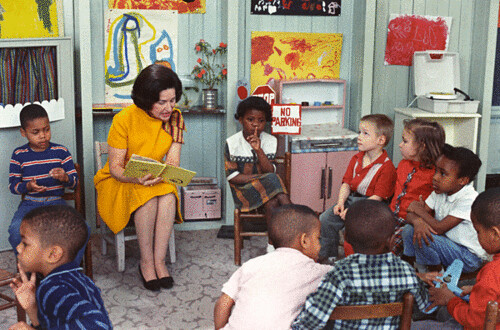 Ever feel like screaming out book recommendations in the middle of class while your classmates one-up each other in the midst of talking about a seminal theory from an equally seminal theorist? And by seminal, I do mean "Western". That totally was my experience tonight as I sat muted during a discussion about Frederic Jameson and postmodernism in my "Readings in Communications Theory and Social Thought" class.
Ever feel like screaming out book recommendations in the middle of class while your classmates one-up each other in the midst of talking about a seminal theory from an equally seminal theorist? And by seminal, I do mean "Western". That totally was my experience tonight as I sat muted during a discussion about Frederic Jameson and postmodernism in my "Readings in Communications Theory and Social Thought" class.
That said, however, I'm grateful to be a apart of an academic environment that encourages its grad students to take ownership of their education by co-creating the syllabus, thereby co-creating classroom culture. My classmates and I have been granted the task of suggesting readings and movies to be included during the second half of the semester.
I proposed the following readings for the second half of the semester to my Columbia University kinfolk tonight. Here's hoping they agree to at least one of these fine texts. Let me know what you think.
###
Tara L. Conley proposes:
Hey all. I'd like to purpose that more critical perspectives from folk of color to be included in the mix, along with some oppositional/differential consciousness readings from women writers. I propose the following works, particularly as they relate to our discussions on Jameson and postmodernism, citizen-subjects, affective realties, and the rhetoric of progress:
- Methodology of the Oppressed by Chela Sandoval. I propose reading and examining Parts I-III (pg. 14-78). From the introduction, Sandoval writes, "Part I engages in a close textual analysis of Frederic Jameson's investigations of capitalist, socialist, repressive, and emancipatory developments as they occur within the transnational order known as postmodernism. The central problem encountered in Part I is Jameson's assertion that forms of resistance, oppositional consciousness, and social movement are no longer effective under the imperatives of the neo-colonizing mode of globalization he calls postmodernism. Part II . . . counters Jameson's assertion by tracking the U.S. women's social movement from 1968-1988, and identifying the oppositional practices adapted and utilized by U.S. feminists of color, who advanced one of the first essentially 'postmodern' resistance movements of the twentieth century, U.S. third world feminism" (pg. 1-2). The first portion of Part III, Sandoval writes, "lays out the primary inner and outer technologies that construct and enable the differential mode of social movement and consciousness" (pg. 2). Sandoval presents a critical perspective that I assume will spark a lively discussion about the relationship between resistance movements and postmodernism.
- Borderlands La Frontera by Gloria Anzaldua. Considered one of the 100 best books of the twentieth century, Borderlands essentially illustrates through narrative what Sandoval argues through 'high' theory. Published in 1987, Borderands is Anzaldua's single-authored seminal text (her other text, This Bridge We Call Home, co-edited in 1981, is as prolific). She had since expanded on her theories of consciousness up until her untimely death in 2004 (see Interviews/Entrevistas, Making Face, Making Soul/Haciendo Caras, and This Bridge We Call Home). Be forewarned, some might find Borderlands difficult to navigate in terms of language-switching and in terms of content. It's a raw text that forces readers to embark on a different kind of theoretical journey.
- I propose reading and examining the following selected chapters:
- Chapter 3, "Entering into the Serpent" (pgs. 47-61)
- Chapter 4,, "La herencia de Coatlicue: The Coatlicue State" (pgs. 63-73)
- Chapter 6 "Tlilli Tlapalli: The Path of the Red and Black Ink" (pgs. 87-97)
- Chapter 7, "La conociencia de la mestiza: Towards a New Consciousness" (pg. 99-113).
- I propose reading and examining the following selected chapters:
- The Souls of Black Folks by WEB DuBois. If you haven't already read this book, (or perhaps you have but it's been a long time since you revisited the book), then I propose reading and examining the following chapters, particularly as they relate to differential (or double) consciousness and the rhetoric of progress:
- Chapter 1, "Of Our Spiritual Strivings" (pg. 7-15)
- Chapter 4, "Of the Meaning of Progress" (pg. 49-58)
Racial Literacy Roundtable with Dr. Chance Lewis
I'm currently at a racial roundtable with Dr. Chance Lewis at Teachers College, Columbia University. He presented this illustration. I copied it down real quick in Google docs. Thought-provoking, no?
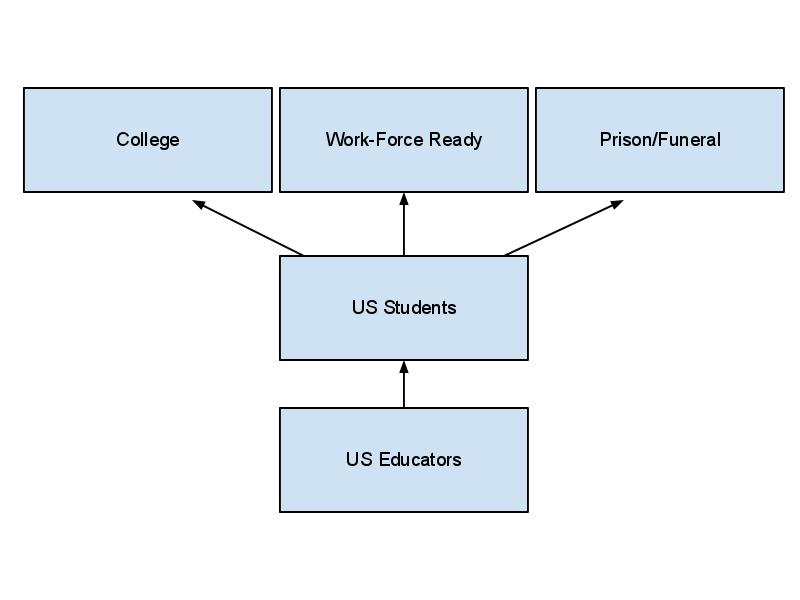
U.S. tax dollars will fund all three pipelines for students; college, work-force; prison/funeral; the question is, where do you want your tax dollars to go?
Click on the image to enlarge.
"So, You're Getting an EdD?"
That's what the little person in my head says as an attempt to cast doubt about my chosen academic path. The snide remark does and sorta doesn't work because I don't doubt my path as much as I'm annoyed at the thought about "explaining" my chosen academic path to others. I'm totally used to it though. When I decided to pursue my master's in Women's Studies I was hit with a lot of dumb ass questions like this one: "Women's Studies, huh? So what do you plan to do with that degree?" It's not only that the question itself is annoying but so is the tone in the person's voice when s/he asks me the question. Oh, that tone grinds my gears (cc Peter Griffin) like nails across a chalkboard! Granted, I could be totally misinterpreting the tone; projecting my own doubts on to the questioner. I'm willing to admit that I am a paranoid perpetual projector. However, as one who has a way of reading between the lines in a culture that devalues "gendered disciplines" like in the humanities, social sciences, and especially education, I'm willing to bet that it's less about my issues with paranoia and projection, and more about people's dumb ass assumptions toward my chosen intellectual journey.
Which brings me to the EdD "issue". Last year I spoke with one of my mentors about the "PhD (Doctor of Philosophy) versus EdD (Doctor of Education)" question in education. He was honest in telling me that when looking for a job some universities might have conflicting perceptions about the EdD route. However, they tend not to question the degree as much if it comes from an "Ivy League" institution. *eye roll* Another one of my professor's noted that it would not necessarily be in the best interest of a university to question an EdD from Harvard let alone a cousin school like Teachers College, Columbia University. The EdD is generally recognized as a research degree, whereas the PhD in education is, well, I'm not quite sure how, in relation to the EdD, it's recognized if not similarly to a high level research degree in education (but you can read more about the differences and similarities HERE). In the end, as my mentor told me, it's about the dissertation. If you produce a quality dissertation that contributes to the field, or fields, then it's likely that the "PhD versus EdD" problem (of perception) won't be an issue when looking for a job in higher ed.
If someone asks why I chose to pursue an EdD over a PhD I can honestly tell them that Teachers College, Columbia University was the only school that was offering a doctoral program I was interested in, which happened to be an EdD program. That's really it.
But unfortunatley, perception is becomes reality. Broadly speaking, people perceive a PhD differently than they do an EdD; where the former holds more value or prestige for some reason. Perhaps one reason could be because the term "PhD" has been reappropriated in popular culture to connote certain things about higher education whereas the term "EdD" has not. In reality, at least in my program, there is no difference between an EdD and PhD. I put in the same, if not more, research and inquiry into pursuing my degree as a PhD student. So while the rest of society continues to institutionalize the idea of degrees, I'd rather get down to what really matters; the intellectual path of the scholar and how s/he contributes to scholarship.
As I was sitting in class today it dawned on me why I do what I do. (I'm sending virtual apologies to my professor for zoning out during her lecture, but this epiphany was just too good to ignore!) Here's what I realized:
If you don't know, I'm currently pursing a doctoral degree in Computing, Communication, and Technology in Education (CCTE) at Teachers College, Columbia University (read more about my program here). My degree plan is somewhat interdisciplinary if you consider that I am studying research and theories spanning multiple disciplines of communication, media, and education. Until today, I was never really satisfied with how I articulated why I chose to interrogate research that intersects with (at least) three major disciplines in both the soft and hard (or rather stiffer) sciences. But I figured it out. I enter into the field with a background in feminist theory and as a practitioner of education and media. 'Gender' and 'race' studies are my preferred areas of theoretical scholarship. Media are my preferred sites to study identity and knowledge production. And education, namely literacy, is the domain in which I choose to engage my activism as an educator, media maker, and feminist scholar-in-training.
So, why the EdD in CCTE you ask, oh-little-snarky-person-in-my-head? Because this is the one program where I can combine all that I am and do with what I love to study and practice. Plus, the name of this blog sounds way cooler than would "Breakfast Ph.D. Omelet". o_O
Thinking about pilot study, cert exam, and dissertation topic . . .
. . . and things seem to be a lot clearer than two weeks ago (professor Kinzer would be proud of me!). I'm currently re-reading professor AnaLouise Keating's piece "(De)Centering the Margins? Identity Politics and Tactical (Re)Naming" while thinking about the post I wrote last week on Melissa Harris-Perry and Joan Walsh, WHILE thinking about a possible pilot study that I may want to conduct based on the curriculum I helped design with Beyond The Bricks for young 'Black' men, WHILE thinking about the impending certification exam I'm going to take in February as part of the doctoral candidacy process, WHILE thinking that I may, in fact, be well on my way to deciding upon a dissertatation topic.
The topic, you ask? Something that has to do with the following (in connection, no particular order):
21st century media literacy curriculum design in non-traditional learning environments
Intersectionality/Reductivism
Making visible outliers in 'race' and 'gender'-based studies/methodology
I am a threshold woman of color tactically (re)naming my place in this world. How boutchu?
< Shout out to Dr. Keating >
